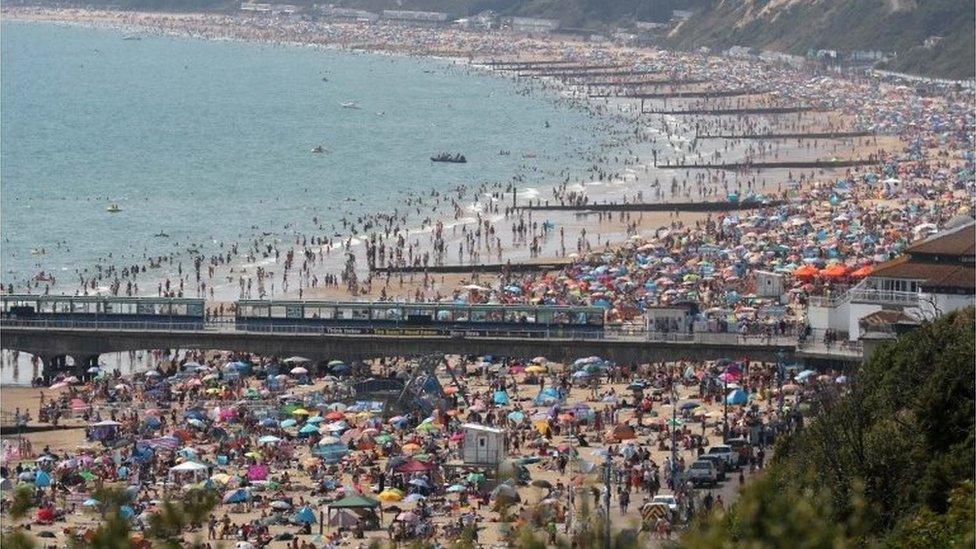UK weather: Hottest August day for 17 years as temperatures top 36C
- Published
- comments

The UK has seen its hottest day in August for 17 years, as temperatures reached more than 36C (96.8F) in south-east England.
Crowds headed to the coast to enjoy the weather, but people have been urged to adhere to social distancing.
Exceptionally hot weather is set to continue in parts of the UK throughout the weekend, the Met Office said.
The highest temperatures are expected in England and Wales, with fresher weather forecast for Scotland and NI.
A band of rain will move across Scotland on Friday evening, the Met Office tweeted, external.
As of 15:00 BST on Friday, the mercury reached 36.4C at London's Heathrow Airport, making it the hottest August day since 2003, BBC Weather said.
It comes just one week after the UK recorded a yearly high of 37.8C at Heathrow.
Earlier, a high of 26.4C was recorded in Wales (Usk), 23.5C in Scotland (Charterhall, Scottish Borders), and 20.9C in Northern Ireland (Katesbridge).
A large wildfire is burning on heathland in Surrey amid the soaring temperatures, with multiple fire crews sent to tackle the blaze.
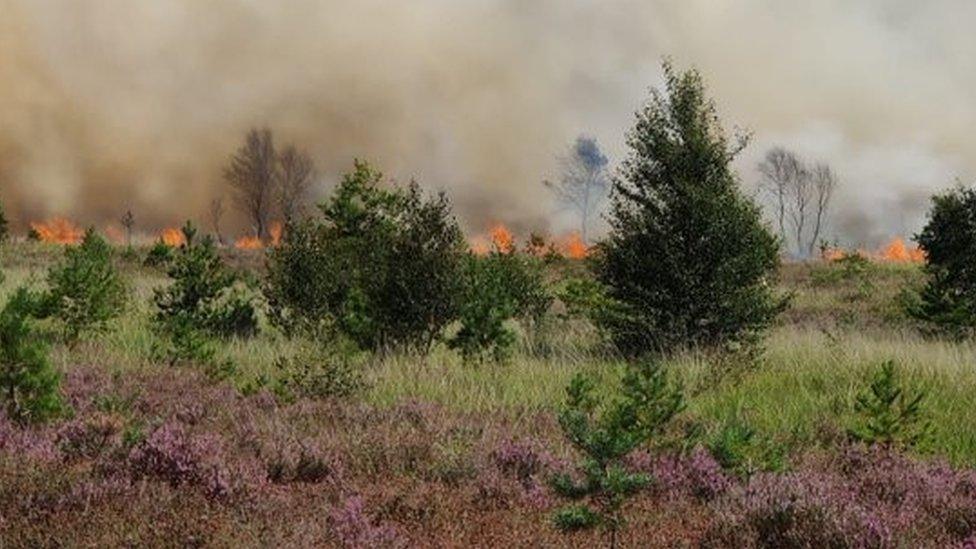
The grass fire on Chobham Common, which is larger than 40 hectares, has also spread to a nearby golf club
Tropical nights
Warm temperatures are also expected overnight, with a number of so-called tropical nights - when temperatures stay above 20C - forecast for the coming days.
Such nights used to be rare. Between 1961 and 1990 there were just eight nights that exceeded that mark.
But the mercury is predicted to stay between 19 and 22C in some areas until next Wednesday night, meaning people in the UK could be facing difficult sleeping conditions for several nights to come.
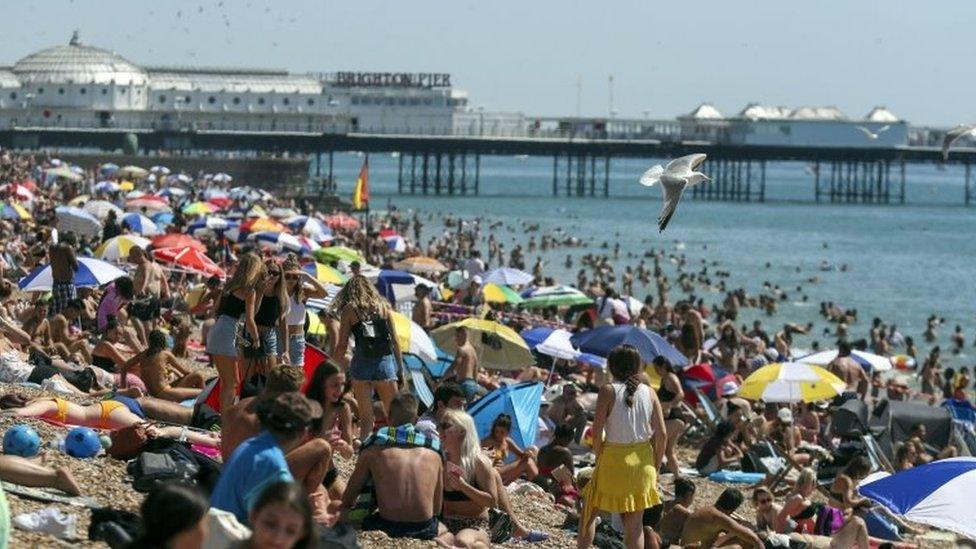
Crowds have already flocked to Brighton beach, in East Sussex, to enjoy the sunshine

Record temperatures are expected in London and the South East
The increasing number of tropical nights is linked to climate change, according to BBC Weather.
And meteorologists have previously said they expect to see more as the climate continues to warm.
Meanwhile, councils have asked sunseekers to follow coronavirus social distancing guidelines, and stay clear of packed beaches, as hundreds of people descended on the coast across Britain on Friday.
In Dorset, beach-goers were told to "head home" as resorts and car parks in some areas reached capacity.
And Thanet District Council in Kent - which warned last month that busy beaches were becoming unmanageable - asked visitors to look for less crowded areas so they can socially distance.
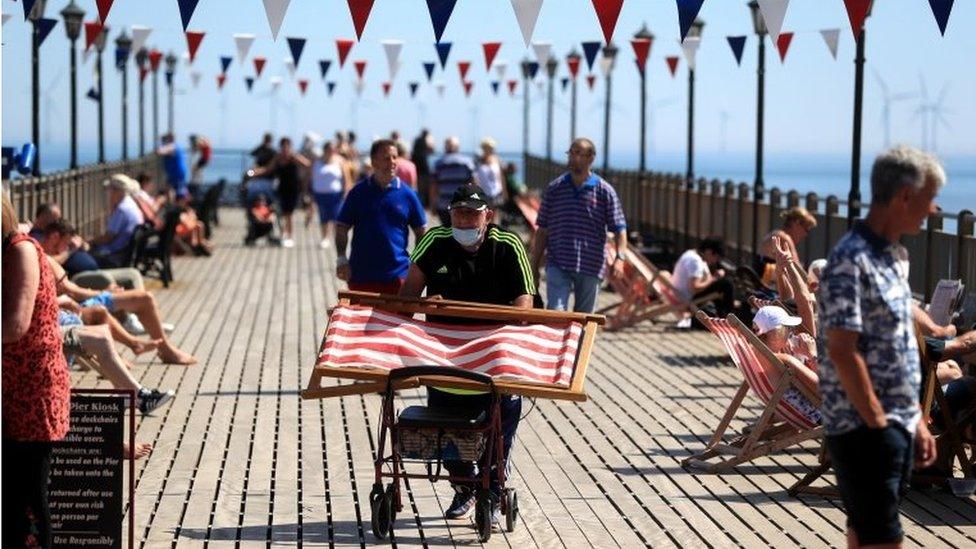
Skegness beach in Lincolnshire was another popular spot for sunseekers on Friday
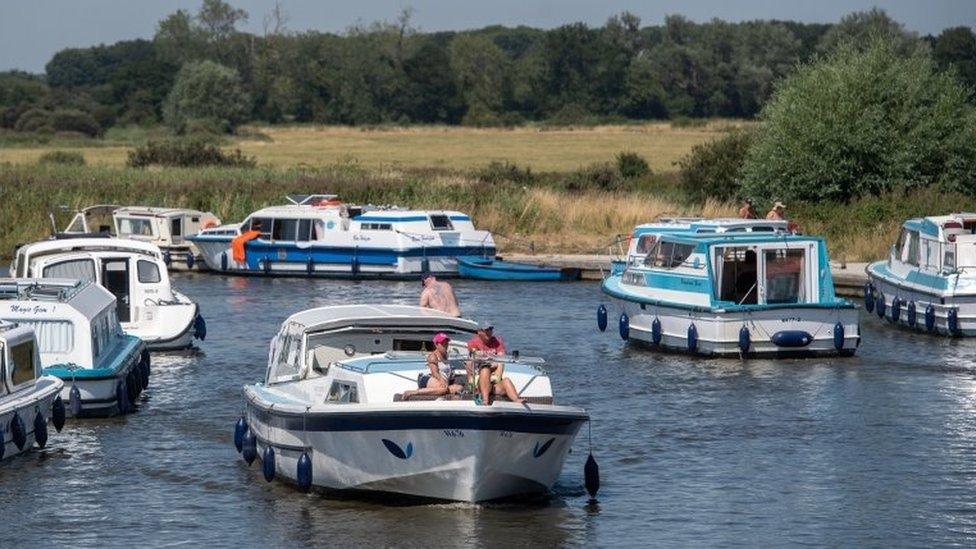
And plenty of pleasure boats were seen making their way along the River Ant on the Norfolk Broads
There were also warnings over public safety at beaches, including by the UK's coastguard, which said it had responded to around 70 calls - above average for this time of year - by midday on Friday.
The RNLI has called on beachgoers in the south west of England to follow water safety advice and adhere to social distancing.
Last week, the charity carried out 30 rescues in one day on just one beach in Cornwall.
The incidents mainly involved bathers and body boarders caught in rip currents, going out of their depth and being cut off by the incoming tide.
Kitty Norman, water safety delivery support at the RNLI, said beaches across the whole of the South West were "extremely busy" with locals holidaying at home this year as well as an influx of visitors.
She said: "The sheer volume of people making social distancing tricky is one thing to be conscious of before planning your trip to the beach.
"You might choose to visit the beach at a quieter time of day, or choose a beach with more space, where you can still bathe between the flagged area but spread out further when setting up camp for the day.
"If you arrive at the beach and it is simply too crowded, consider moving on and spending your day elsewhere."
She also asked people to respect a two-metre distance when approaching lifeguards.

UK's hottest temperatures on record
38.7C - Cambridge Royal Botanic Gardens, 25 July 2019
38.5C - Faversham, 10 August 2003
37.8C - Heathrow, 31 July 2020
37.1C - Cheltenham, 3 August 1990
36.7C - Heathrow, 1 July 2015
Source: BBC Weather

Last week, the Met Office warned that climate change driven by industrial society is having an increasing impact on the UK's weather.
Its annual UK report confirmed that 2019 was the 12th warmest year in a series from 1884, and described the year as remarkable for high temperature records in the UK.
- Published7 August 2020

- Published19 July 2022

- Published7 August 2020

- Published7 August 2020
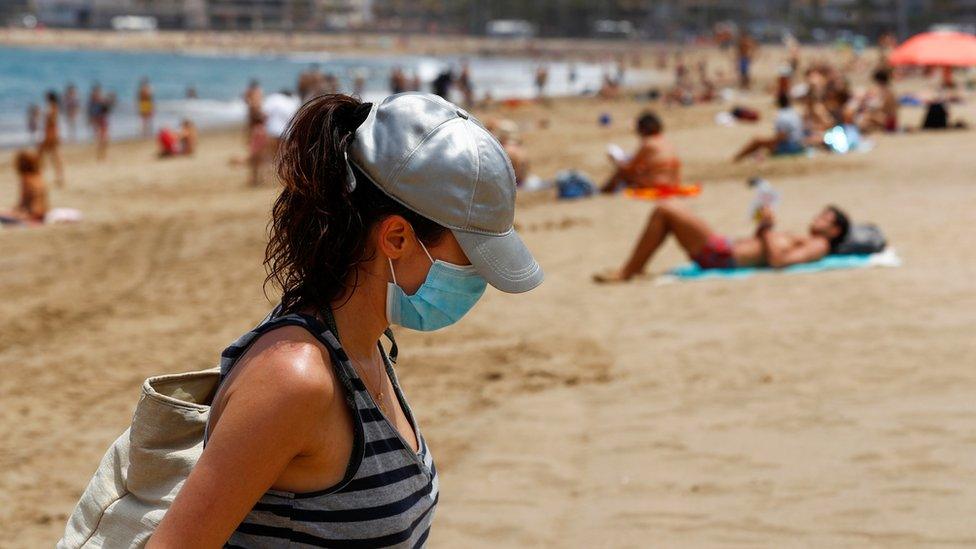
- Published31 July 2020
